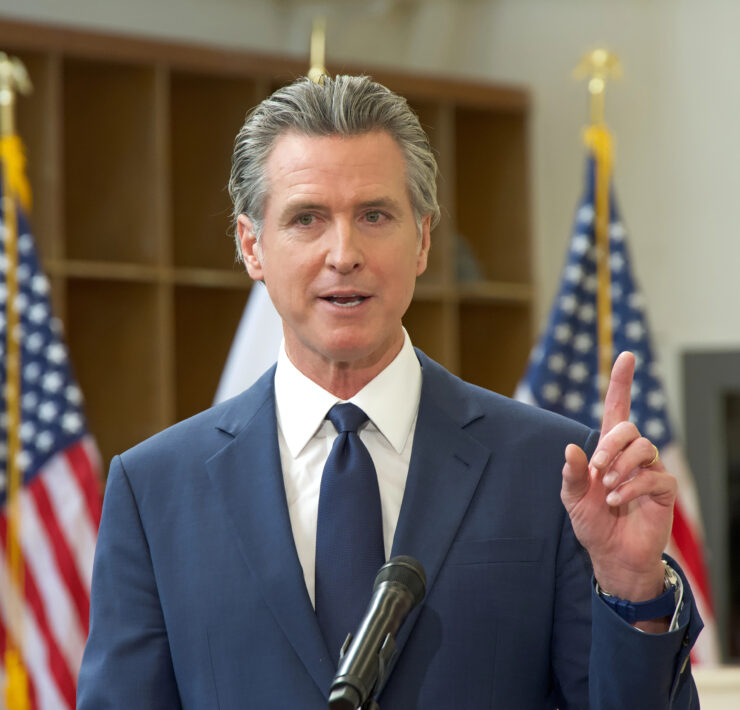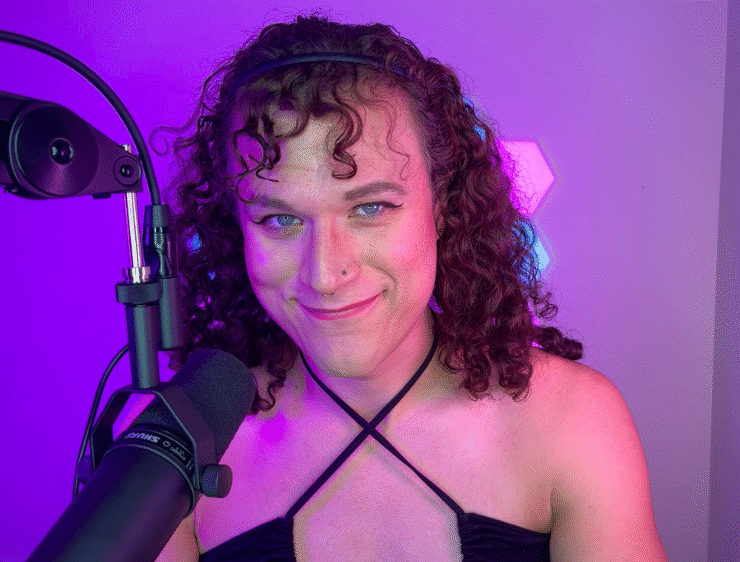Sam Feder Brings Trans Visibility to Life in ‘Disclosure’

Denny Patterson is a St. Louis-based entertainment and lifestyle journalist…
Sam Feder is a trans filmmaker who continues to shake up Hollywood. Known to create several award-winning documentaries that center the intersections of race, class, sexuality, and conflict within the queer and trans community, his films have been featured at Sundance, Tribeca, and several other festivals around the world.
Feder seeks to connect transgender struggles and liberation to the context of the present and legacy of the past, but he accomplished much more with his most recent project, Disclosure: Trans Lives on Screen.
This groundbreaking Netflix documentary has garnered critical acclaim and reached a wide audience. Chronicling an eye-opening look at trans depictions in Hollywood, the film reveals how the entertainment industry simultaneously reflects and manufactures our deepest anxieties about gender. Disclosure has become required viewing when it comes to the authentic representation of the trans community in film and TV.
Why is such a film coming out now? Because we are at a crossroads as social movements are in direct conversation with Hollywood. Disclosure is the manifestation of this moment for transgender people and their representation.
OUT FRONT had the opportunity to ask Feder some questions about the film and how rewarding of a project this was for him. Hi, Sam! Thank you for taking some time to answer some questions about directing Disclosure: Trans Lives on Screen. How did this journey begin for you, and why did you want to be involved?
Hi, Sam! Thank you for taking some time to answer some questions about directing Disclosure: Trans Lives on Screen. How did this journey begin for you, and why did you want to be involved?
I had been ruminating on Disclosure for many years, decades even. Then in 2014, when mainstream media outlets were shining a light on trans visibility, like Time Magazine declaring a “transgender tipping point” with Laverne Cox on the cover, I felt it was necessary to add more trans voices and a historical context to that conversation. I was concerned about the backlash the trans community would experience now that we had media attention. I was wrapping my mind around the celebratory increase of trans visibility along with the increase of social and legislative violence. I wanted to explore that paradox of visibility while showing people what led to this moment.
Disclosure may be nominated for some major awards. How exciting and significant would that be?
A film about the trans community, past and present, let alone made by so many trans people, has never before been a contender for such major awards. That alone would be unbelievably humbling and monumentally historic. If trans lives and stories are embraced by major institutions, our life-saving issues would get so much more support. Disclosure’s impact started on our first production shoot in January 2018 by training future trans filmmakers, which inspired trans sensitivity training at the largest tech union in the world, IATSE. Disclosure has impacted the work of A-list Hollywood actors like Ryan Reynolds and Halle Berry to California judges, ACLU lawyers, HR departments, and educators around the world. Being nominated would further that impact for generations to come.
I am glad you mentioned the training because I read that all non-trans crew members who were hired on Disclosure had to agree to train a trans person trying to make it in filmmaking. Can you talk more about that?
From development to distribution, trans people must be at the center of our own stories. For Disclosure, we prioritized hiring trans crew. When we could not do that, the non-trans person that we hired mentored a trans filmmaker. The fellowship provided a daily stipend, meals, networking opportunities with industry professionals, hands-on training, and mentorship. Many of our fellows now have jobs in the industry and are screening their own films across the country.
Related Article: Laverne Cox: A Trailblazer for Trans Representation
How did your passion for storytelling begin?
When I was 15, I took a photography class. A few months later, Magic Johnson announced he was HIV positive. My high school science teacher, Laura Seidman, was a huge Magic Johnson fan, so she began organizing us around HIV/AIDS activism. Being politicized for the first time, I began to see how media shapes stigma and influences cultural norms. With my Pentax K1000, I told stories about Black and Brown gay men who were HIV+, and the children they adopted who were born HIV+. I got hooked on the transformative potential of storytelling. A decade or so later, I began applying that lens to films about my community of queer and trans people.
What do you hope audiences take away from Disclosure?
I hope Disclosure gives people the confidence to interrogate their beliefs systems about trans people and all marginalized people. The way we learn about someone impacts how we treat them, and I hope people will reflect on how we have all internalized these stories. And of course, I hope this moves the needle on people’s bias towards trans people.
How harmful have old stereotypes, memes, and tropes of trans people in the media been in regards to understanding trans issues?
The way we learn about people impacts how we treat them. Eighty percent of Americans say they have never met a trans people, and the only trans people they “know” are those they have seen in film and TV. Those images have been deeply distorted and dehumanizing. Dehumanization always leads to social and legislative violence. How were you feeling once you saw the final product?
How were you feeling once you saw the final product?
Very proud. This was a labor of love for many, many years with over 150 trans people contributing to the story and so many allies bringing us to the finish line. We hit a lot of roadblocks and setbacks along the way, but we, Laverne Cox, Amy Scholder, and our entire team, never budged on our priorities and values, and I think that comes through in the story.
My final question for you is, what did working on this film personally mean to you?
It empowered me with a history and knowledge that no one thought was necessary to teach before. It filled many gaps and opened up so many more questions. It provided the evidence I needed to understand where we are and how we got here. It created a foundation that I had been missing and needed for so long. Having the data to show the roots of so much of the transphobia I have witnessed is empowering. Ultimately, it was a huge git to work with so many queer and trans people who are like minded.
To stay up-to-date with Feder, follow him on Twitter and Instagram. Disclosure is available for streaming on Netflix, and more information can be found on the film’s official website.
Photos Courtesy of Sam Feder
What's Your Reaction?
Denny Patterson is a St. Louis-based entertainment and lifestyle journalist who serves as OFM's Celebrity Correspondent. Outside of writing, some of his interests include traveling, binge watching TV shows and movies, reading (books and people!), and spending time with his husband and pets. Denny is also the Senior Lifestyle Writer for South Florida's OutClique Magazine and a contributing writer for Instinct Magazine. Connect with him on Instagram: @dennyp777.










